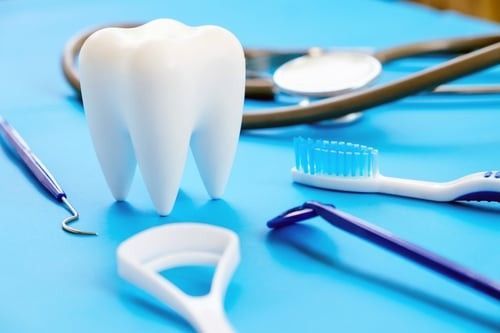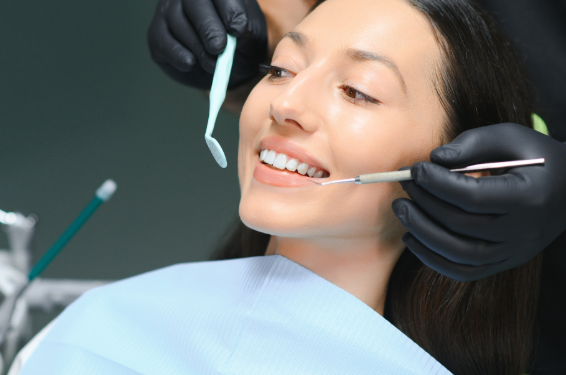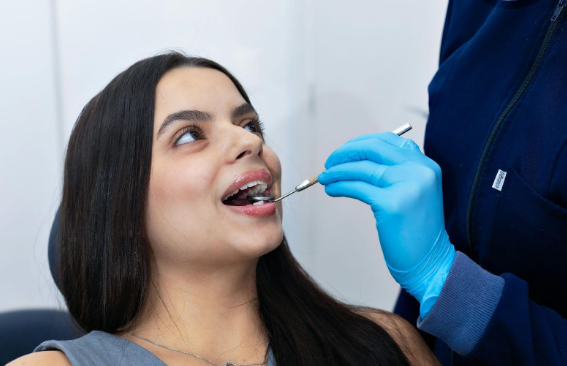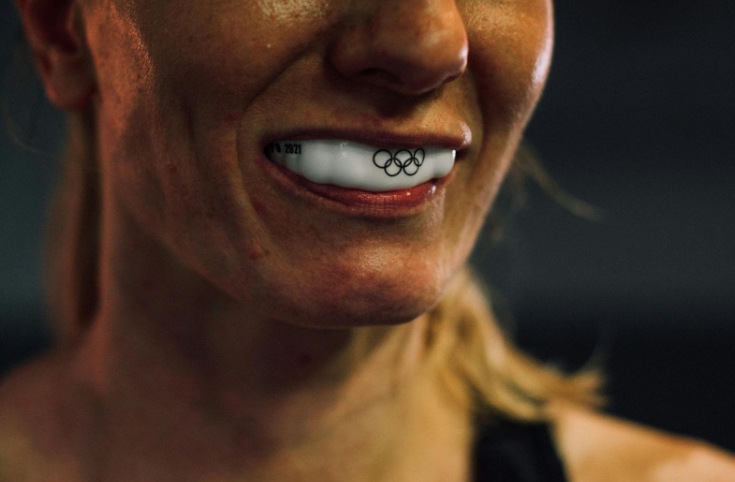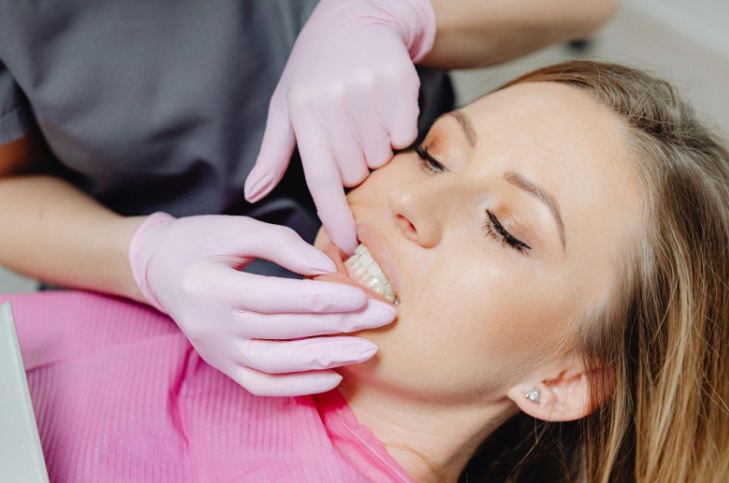11 Easy Tips for Good Dental Hygiene
11 Easy Tips for Good Dental Hygiene

It is well known that good oral hygiene and strong teeth and gums are essential for one's general health. According to the findings of several studies, there is a correlation between a person's oral health and the state of their body.
Speech, smiling, expressing emotions, and eating are all impacted by oral health. It has adverse effects on a person's professional and personal life, as well as their motivation and sense of worth. Many painful and severe oral disorders, including those affecting the whole oral-facial system, such as cavities, gum disease, and oral cancer, may develop due to neglected dental hygiene.
Tips for Dental Hygiene
These issues may be avoided with regular visits to the dentist and diligent self-care. The following 11 suggested practices help keep teeth and gums healthy.
1. Select the Appropriate Toothbrush
The first step in maintaining good oral hygiene is choosing a toothbrush for your specific needs. It's essential to select a toothbrush with a manageable head size since it might be cumbersome to reach the back teeth if the brush is too wide. Inaccessible places are ideal for the growth of bacteria.
Toothbrush bristles should be thin enough to penetrate the tiny crevices between your teeth. They should be gentle on your gums and teeth, so you may exert pressure without discomfort. This is crucial since plaque removal requires a certain amount of stress.
2. Brush Your Teeth Properly and Regularly
Although not everyone is aware of it, there is a certain way to brush your teeth that guarantees you remove all traces of food from between your teeth. Use the ADA (American Dental Association) recommended brushing method next time.
It's best to start by holding the toothbrush at a 45-degree angle to the gums. Brush the exterior surfaces in quick, soft strokes. Apply the same method to your teeth's front, chewing surfaces, and rear.
When brushing the inside of your front teeth, you should angle the toothbrush vertically and move it up and down. Remember to also clean your tongue with your toothbrush. After brushing your teeth, you should wash your mouth and toothbrush. It is recommended to brush twice daily.
3. Utilize a Tongue Scraper
The tongue is also a breeding ground for plaque due to its rough, uneven surface. Bad breath and dental hygiene issues may result from bacteria hiding in these crevices.
Water and mouthwash merely remove the plaque's surface cells. Therefore, they are ineffective. The cells behind your tongue will continue to flourish.
For this reason, many modern toothbrushes include a tongue scraper built into the bristles on opposite sides of the head. To some extent, this aids in eradicating the bacterial film that forms on one's tongue. But be careful not to brush too vigorously because you can irritate or even damage the skin.
4. Change Your Worn Toothbrush
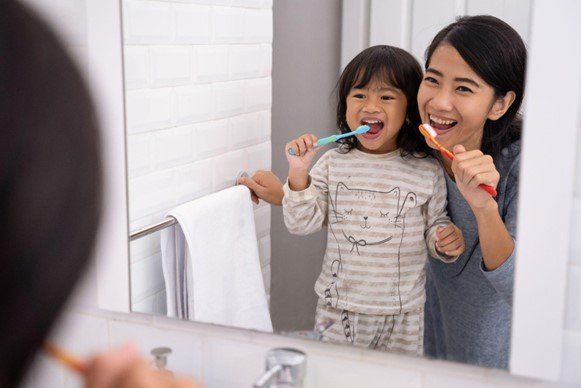
As a matter of thumb, you should change it every three to four months to maintain good condition for cleaning your teeth. Brushing using a worn-out or cracked toothbrush may harm your gums and teeth.
If you replace your toothbrush often, you may aid in its upkeep. The best approach to maintaining your toothbrush is to clean it after use and let it air dry before putting it away. You should throw away your toothbrush and get a new one after being ill to avoid reinjecting germs into your mouth.
5. Rinse Your Mouth
Certain mouthwashes have positively affected scientific investigations into optimal oral hygiene. One study indicated that chlorhexidine-containing mouthwash was effective in reducing plaque and gingivitis. A meta-analysis also found that mouthwashes containing certain essential oils were helpful.
People should consult their dentists for recommendations on the most effective mouthwash. While mouthwashes can't take the place of regular brushing and flossing, they can certainly help!
6. Floss Regularly
If you fail to floss, you won't remove all the plaque and germs in your mouth. Even the best toothbrushes can't reach every nook and cranny.
If plaque is allowed to build up on your teeth, it might eventually turn into tartar. Over time, this may cause gum disease; meanwhile, it can make your gums more sensitive and prone to bleeding.
Plaque may be removed from the chewing surfaces of your front teeth by brushing, but not the chewing surfaces of your back teeth. This is why it is essential to floss daily.
7. Eat Well
Sweets, sticky foods, acidic meals, etc., should be avoided. We've come to understand that eating them in moderation is key to maintaining good teeth.
Strong, healthy teeth may be supported by a diet rich in calcium-rich foods. Vitamin D is essential for calcium absorption, and fatty fish like mackerel, tuna, and salmon provide enough. Vitamin D and calcium are necessary to maintain strong bones and teeth.
Almonds, yogurt, cheese, leafy greens, and fiber-rich fruits and vegetables like apples are all excellent choices for bolstering dental health. Saliva is essential for a healthy mouth and teeth, and these meals help stimulate its production.
8. Stay Hydrated
Drinking enough water is beneficial to your health in general and aids in saliva production. The saliva in your mouth helps keep your teeth healthy by washing away food debris and keeping germs from settling into crevices in your teeth. It's a bonus because it helps maintain a pleasant, moist environment in your mouth.
9. Don’t Forget About Dental Sealants!
Filling the pits and grooves (fissures) of your back teeth (molars and premolars) with dental sealant will help prevent cavities and plaque buildup. Sealants are helpful for everyone, but they benefit children and teenagers with a greater risk of cavities because they don't brush as thoroughly as adults.
10. Check Your Mouth at Home
Though dental examinations twice a year are highly recommended as a preventative step, problems may arise in the meantime. If you want to head off any serious issues, you should make it a habit to check the inside of your mouth every day.
Examine your gums and teeth for changes or anything that appears out of the ordinary. Make sure your dentist knows about this before your next visit. Self-examinations should be a regular part of your health maintenance routine.
11. Plan Biannual Visits to the Dentist
Visiting the dentist regularly will allow them to spot any problems before they become severe. Having your teeth professionally cleaned twice a year may also help you keep your teeth and gums healthy. As a result, it is critical to schedule regular checkups.
You can count on receiving the highest standard of dental treatment here at Patriot Family Dental. Contact us to book an appointment now!



